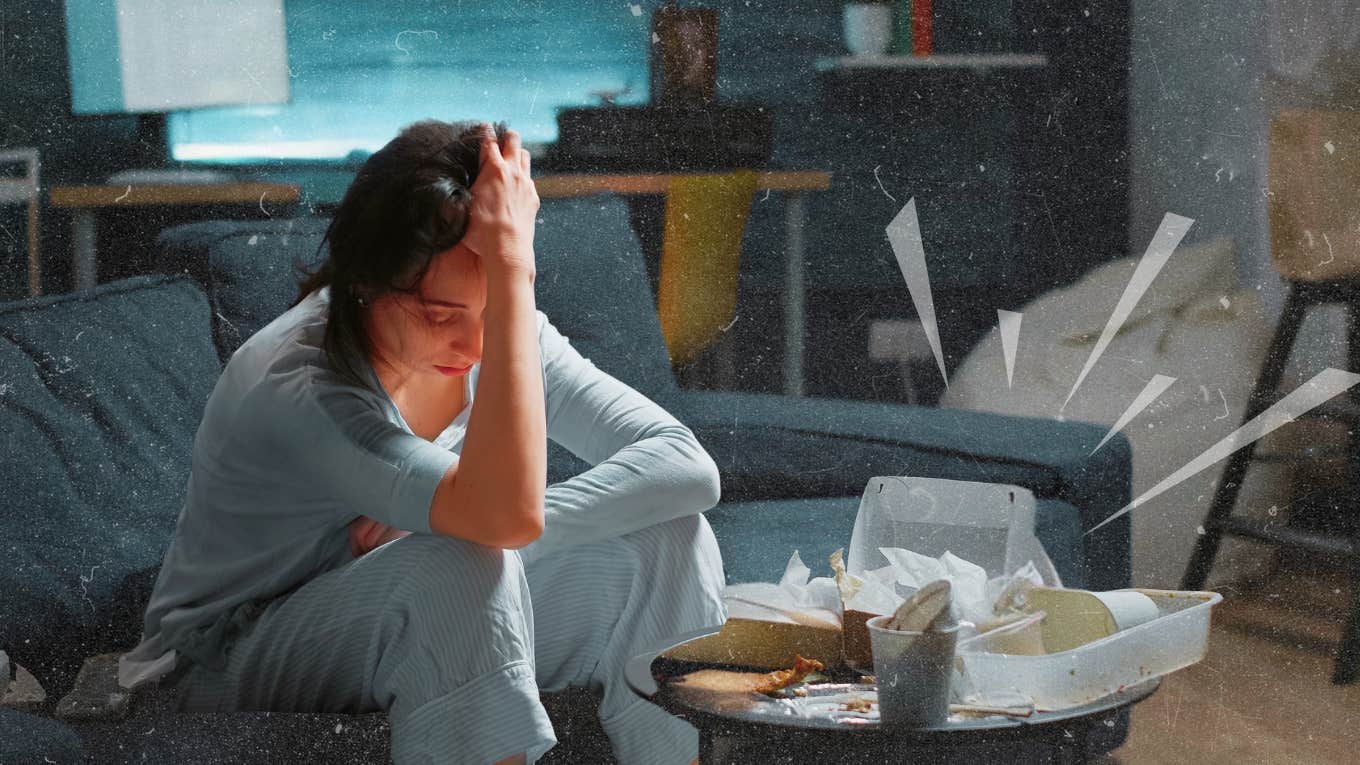If You’re Depressed, One Of These 3 Common Things Could Be The Cause
Finding the cause of depression is the best way of managing it.
 Dragos Condrea | Canva
Dragos Condrea | Canva When someone admits that they’re depressed, too often, people are quick to blame it on a chemical disorder. But that’s too simple of an answer for something as complex as depression. Even the Harvard Medical School has argued that “Research suggests that depression doesn't spring from simply having too much or too little of certain brain chemicals.”
Chemical imbalances may result from or contribute to depression, but they’re not the sole cause. When we’re feeling depressed, we need to look at our lives critically and attempt to figure out what combination of stimuli might be contributing to these negative emotions.
YourTango Expert (and clinical psychologist) Dr. Susan Heitler suggests 3 common things we need to consider when we look for the true cause of our depression. (It collects some of the advice she offers in her new book, Prescriptions Without Pills: For Relief From Depression, Anger, Anxiety, and More.) If you’re feeling depressed, consider these 3 normal causes for depression and ask yourself if they apply to your situation.
Here are 3 common things that could be the cause if you’re depressed:
1. Insufficient “raw ingredients” in your body
We don’t just mean fruits and veggies. We must be aware of all the raw ingredients we use to nourish and sustain our bodies. That can involve good food or getting enough sleep. Or, it can involve how much positivity you’re encountering daily.
Are you making eye contact with people? Having conversations? Having skin-to-skin contact with others? Do you spend enough time in the sun? All of these factors can play a big role in upping your daily energy levels and, if you’re not supplying your body with these “ingredients,” feelings of depression can begin.
2. Loss and grief
Any loss can trigger grief, and grief is a kind of depression. The most familiar form of grief is the kind experienced when a friend or a loved one dies, but that’s not the only form of loss we encounter regularly. We experience smaller (yet significant) moments of loss all the time.
Maybe our favorite sports team loses the big game or we lose a job, a friend, or an opportunity we wanted. All of those experiences, big or small, can inspire feelings of grief and depression.
 fizkes via Shutterstock
fizkes via Shutterstock
3. Feeling powerless to get something you want
This is a big one that we often overlook. It’s hard to go through life constantly feeling like you can’t achieve what you want to achieve. That can occur on a physical level and emotional level, but either way, it can play a major role in causing feelings of depression.
Maybe you want to be respected by a peer and they criticize you in public. Maybe, you want to form a deeper romantic bond with a friend and they’re not interested. When we feel like we cannot shape our destinies, it can make us feel hopeless, worthless, and, yes, depressed.
In the above video, Susan walks you through a visualization exercise that can help you determine if you’re feeling powerless in your life and who exactly is making you feel that way. It’s a powerful tool to help focus those feelings of hopelessness and start figuring out how to heal.
That’s the key, the reason we need to figure out the cause of our depression is because it’s the best way to help us come up with a strategy for dealing with it.
Once we know what inspired the feelings, we can attack the roots of our depressed feelings, work towards resolving them, and move towards a healthier, happier lifestyle.
Dr. Susan Heitler is a clinical psychologist and author. She is a subject matter expert in breaking bad habits and unhealthy behaviors. Tom Burns has served as a contributing editor for 8BitDad and The Good Men Project, and his writing has been featured on Babble, Brightly, and Mom.me, Time Magazine, and various other sites.

